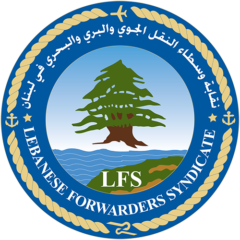Freight Forwarders hold an important position in International trade. Traditionally, they were mainly engaged in assisting with preparing and booking cargo for subsequent carriage.
In doing so, they would be performs a number of services to the carriage and also contract for carriage as an agent of the merchant / Manufacturer. In some cases, freight forwarders would, at the same time act as agents for carriers, particularly liner shipping companies for the carriage of goods by sea.
So, Freight Forwarders operate under many names and licensing requirements. All freight forwarders, however, are transportation intermediaries that arrange the movement of cargo according to customers’ needs.
Supplementary services such as shipment tracing, warehousing and storage, and the preparation of letters of credit also are offered by Forwarders.
Freight Forwarders often are referred to as “transportation architects.” Through working with numerous air, road, rail, and water transportation companies, these establishments endeavor to find the least expensive and most efficient freight routings possible. Their services are popular with shippers because freight forwarders are not affiliated with one carrier and therefore are not biased or restricted.
Also, forwarders are known for their expertise in the ever-changing regulations that affect cargo movements, such as hazardous goods handling, documentation, and insurance. The carriers, in turn, welcome the business from forwarders. In fact, smaller carriers, who cannot afford to maintain sales staff, depend on the business tendered by forwarders.
All Forwarders that are involved in Ocean, truck, or rail forwarding must be licensed by the Ministry of Transport.
However , the majority of freight forwarders are licensed by the Ministry of Transport as ocean freight forwarders.
Some ocean freight forwarders, known as NVOCC “Non Vessel Operating Common Carriers”, operate as third-party carriers and issue their own bill of lading.
A freight forwarder has been subject to formal licensing requirements: however to issue airline AWBS in their offices air cargo agents that are involved in international forwarding should be endorsed by the International Air Transportation Authority (I A T A ).
Freight Forwarders firms are specialized in arranging storage , shipping etc… on behalf of their customers , they usually provide a full range of services:
- Tracking shipments,
- Preparation of shipping and export documents,
- Warehousing,
- Booking cargo space,
- Negotiating freight charges,
- Freight consolidations
- Cargo insurance
- Insurance claims Freight Forwarders ship under their own bills of lading or air waybills , using HWB, and their agents or associates at destinations , provide document delivery , deconsolidation and freight collection services.
Hence, in order to excel in their performance they have to be globally prepared to handle their business , being expert in:
- International business logistics
- Supply chain management
- Airfreight
- Ocean freight
- Insurance
- Inco terms
- Intermodal & Multimodal transport
- Packaging requirements
- Warehousing , customs bonded and free zone areas
- International trade terminology
- International trade documentation
- Import/Export formalities
- Business marketing
- Communications , and
- Many other courses that would lead to perfect performance and customer service
